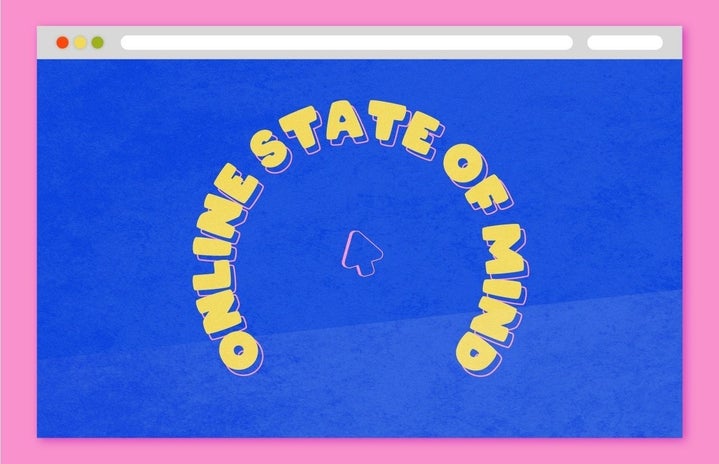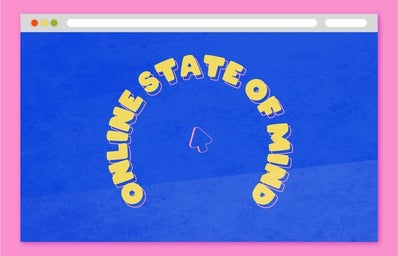*Trigger warning* discussion of mental health issues, terror attacks and sexual assault
You will probably have heard of incels but might be less acquainted with its female counterpart. From exclusive subreddit groups to popular TikTok hashtags, femcels have found their way onto mainstream social media platforms, but to whose detriment?
The term incel (or involuntarily celibate) was first coined by a Canadian woman named Alana in the late 1990s before the age of Instagram and Facebook. Alana started this group online and used it to share her dismay at being unable to get laid. She later found love and disbanded the group thinking that would be the end of it- but, of course, in the wonderful world of the internet nothing is ever just left behind. The incel subculture has since morphed and transformed into something she could never have imagined.
Incel now describes a group of radicalised men who are disaffected and on the fringes of society, blaming feminists for their lack of sex. To them it’s an identity, they engage in disturbing and harmful hate speech which has led to multiple terror attacks such as the 2021 attack by Jake Davison in Plymouth where five people were killed, including a three-year-old girl.
Femcel refers to a different, possibly less harmful group of people. Their most popular group was on Reddit with 25,000 members in the subreddit r/Trufemcels. They were offering a type of counterculture to what they viewed as an overly positive wholesome feminism (think ‘girl boss’ or when a conventionally attractive woman promises you’re not ugly). They wanted to create a space where they could be candid about not fitting the beauty standard, complain about how they felt ugly and discuss how this impacted their sex life. They hold pessimistic views of men and speak harshly about them. On Reddit, femcels would reminisce about their negative male encounters and tended to wallow in self-pity instead of actively seeking to change these issues. After promoting transphobia and spreading alt-right conspiracy theories the group got shut down.
Despite the promotion of hate speech, it’s understandable why femcels felt so bleak about men. They identified one of the many issues with the patriarchy; it’s commonplace for men to sexually desire women but not respect them. The 1 in 3 statistic certainly evidences this. Femcels spoke of not feeling able to explore their sexuality safely because of the power imbalance between the genders which I think most women (who are attracted to men) can identify with.
The word femcel was popularised when the hashtag surfaced on TikTok in 2020 and gained momentum over the last two years with 454.7 million views. The videos curate a femme fatale aesthetic featuring pretty girls wearing dark chipped nail varnish and only types in lower case. Similar to the original femcels, these content creators seemed to have found some solace in sharing their misanthropic views of life and enjoy leaning into their more destructive thought patterns and behaviours.
The female manipulator hashtag also started to trend as a result of the growing popularity with the ‘femcelcore’ aesthetic. Girls took inspiration from the likes of the narrator of My Year of Rest and Relaxation and the protagonist from the hit BBC series Fleabag, referring to a particularly self-destructive phase in one’s life as your ‘fleabag era’. The aim seems to be glorifying negative behaviour patterns through a 30 second TikTok video where a pretty girl quotes Amy Dunne’s infamous ‘cool girl’ speech from Gone Girl.
To be honest I thought we had grown out of glamorising mental health issues and aestheticizing dark periods of our lives. To me, the femcelcore content is reminiscent of the sad-girl Tumblr aesthetic from 2014 just rebranded. For those of you who don’t know what I’m referring to the sad Tumblr girl would post black and white photos of wilting flowers or depressing quotes. She crushed HARD on Evan Peters’ character Tate from American Horror Story, dressed like Effy from Skins and listened to Lana Del Rey’s 2012 album Born to Die on repeat. If this doesn’t resonate with you, you’re either too young or lived a somewhat happier teenage girlhood; either way I’m jealous.
These self-proclaimed femcels on TikTok defend their content by painting it as a form of dark irony to make fun of themselves and make light of their own mental health issues, but my fear is the effects on younger, more vulnerable viewers. This sort of nihilistic cynical content creates an echo chamber for self-destructive thoughts and feelings which we’ve already seen from the sad-girl Tumblr trend. For example, girls would start a Tumblr page to have an outlet for their anorexia, but often it would quickly turn into a ‘pro-ana’ group, a place to swap advice and tips on how to lose weight more effectively or share ‘thinspo’. Romanticising mental health problems and applauding negative problematic behaviour only perpetuates the problems these girls have in the first place and breeds further self-esteem issues.
Femcelcore is a hollow attempt at taking back power when engaging with conversations about gender equality and politics would do far more than posting an instructional video on how to manipulate men.
What started off as ‘ugly’ women complaining about beauty standards and the behaviour of men has now flourished on mainstream social media into an aesthetic. Femcelcore exposes a peculiar need to conform to a certain vibe through your outfits, actions, and interests. These ‘female manipulators’ want to give the impression that they’ve read Sylvia Plath’s The Bell Jar and know every Mitski lyric whether they actually do or not (this Substack article discusses the incessant need for female categorisation very well). It’s all about giving the appearance of living a dark chaotic lifestyle in order to feel a part of something.
So, does femcelcore expose humanity’s need to fit into a box? Or is social media pushing us all into neatly defined groups for the purposes of consumption? Or have we always felt the need to categorise ourselves?


